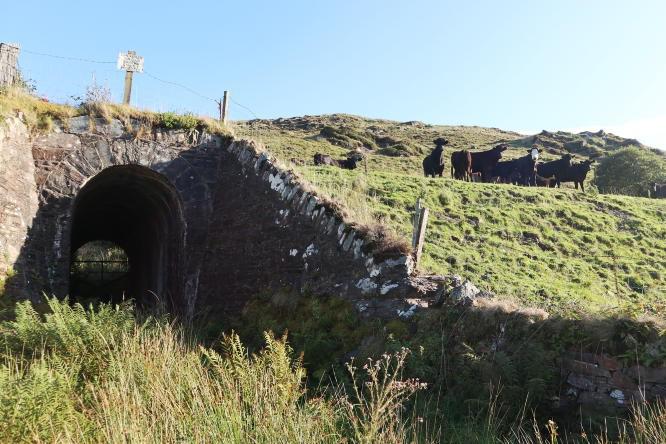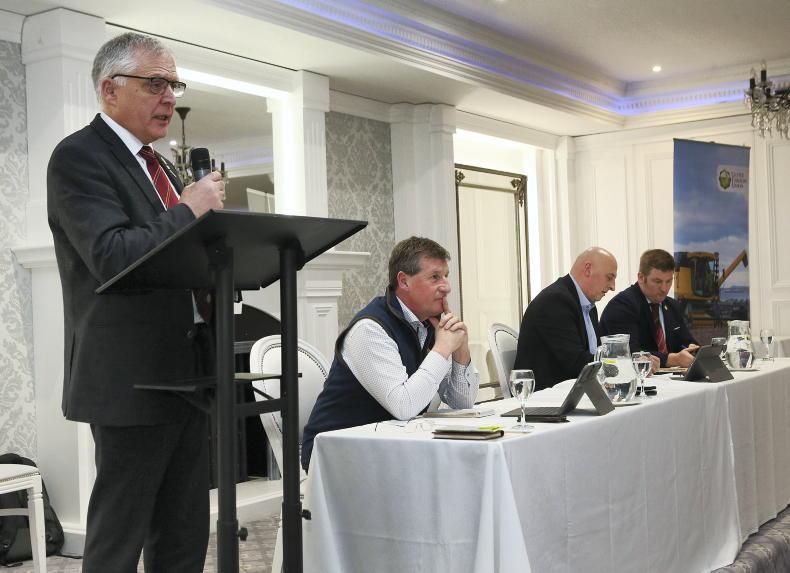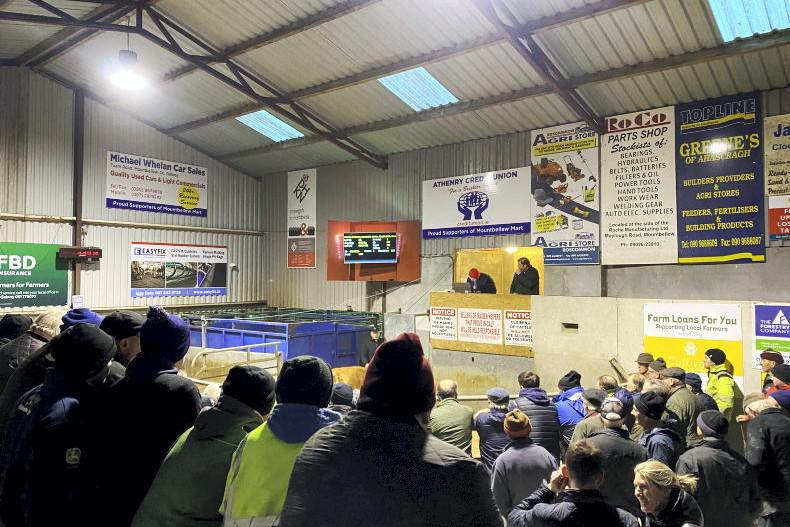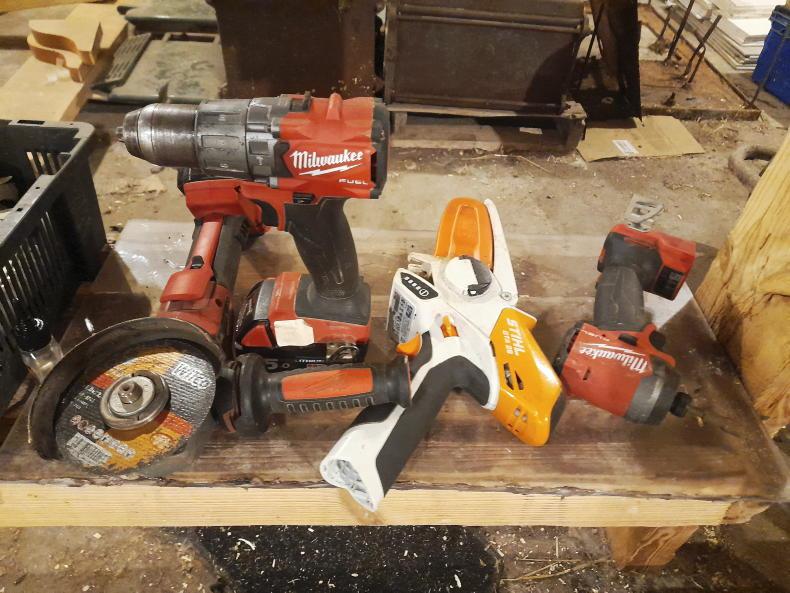A few months back when the cold wet weather of this weekend seemed a far-off thought, I spent a night in a friend’s house on the north side of Dublin city. She had just moved with her husband and two boys into a lovely cul-de-sac house with a bigger garden and kitchen and her comment was “we don’t know ourselves”. But it wasn’t the house that stood out to me as the most positive aspect of the move but rather the ease of city living.
It was always my ambition to raise my children in the way I had been raised; with a field in front and behind the house
I often find myself speaking on the urban rural divide in similar discussions to what Katherine O’Leary refers to in her column this week. I am the defender of the rural dweller, but that evening made me think. I lived in Dublin for a long time but that was before I had my children.
It was always my ambition to raise my children in the way I had been raised; with a field in front and behind the house. To have easy access to schools, be safe and healthy and have an affordable mortgage.
That warm evening my friend, her family and myself jumped the wall at the side of their new house and walked up to the local cricket grounds for Friday night cricket. I didn’t know what to expect, not knowing anything about the community or cricket so what greeted me was quite surprising.
Later that evening my friend and I walked to a local restaurant, of which there was a selection. It all seemed so easy
The grounds were packed with young kids and their parents. Local restaurants were selling street food and coffee. A horn sounded and the two boys ran off to their respective groups, coached by the younger members of the cricket club. Parents gathered for a sociable drink. A horn sounded again after an hour or so and we walked back home. Later that evening my friend and I walked to a local restaurant, of which there was a selection. It all seemed so easy.
Sitting in traffic can impact on your mental health and I have developed some coping strategies to pass the time
In rural Ireland we see many great initiatives, like that Friday night cricket, run by local communities but it is less easy. In the countryside you have to drive to most events – it’s a simple fact of life. Both myself and husband travel to Dublin for work. He must go every day, while I go most days. We are both commuters.
There is a lot to be said for living and working in rural Ireland
Sitting in traffic can impact on your mental health and I have developed some coping strategies to pass the time, mainly talking on the phone and catching up on podcasts. Just last Friday, I spent over an hour on the M50 travelling what should be a 10-minute journey. I didn’t see an accident or hear about one on the traffic reports.
It was just Friday evening (although it was still mid-afternoon) traffic. There is a lot to be said for living and working in rural Ireland, there are still challenges to overcome and policy is needed.
Balanced development to support a vibrant rural Ireland remains essential for the future good of the country.
More people, more jobs and more activity would all feed in to revitalising rural communities
Providing opportunities for families to move to rural communities may not be a panacea but, given enough Government support, it would go some way towards relieving the housing crisis in cities and the log jams on our commuter routes.
More people, more jobs and more activity would all feed in to revitalising rural communities. While there are some negatives for rural living, what is lost in ease is gained in a multitude of other benefits. Rural Ireland needs a vibrant economy and community if it is to thrive, and policy is essential to help make that happen.
Read more
One word for Women & Ag 2019: transformative
Mothers of invention at the Folly Pumpkin Patch
A few months back when the cold wet weather of this weekend seemed a far-off thought, I spent a night in a friend’s house on the north side of Dublin city. She had just moved with her husband and two boys into a lovely cul-de-sac house with a bigger garden and kitchen and her comment was “we don’t know ourselves”. But it wasn’t the house that stood out to me as the most positive aspect of the move but rather the ease of city living.
It was always my ambition to raise my children in the way I had been raised; with a field in front and behind the house
I often find myself speaking on the urban rural divide in similar discussions to what Katherine O’Leary refers to in her column this week. I am the defender of the rural dweller, but that evening made me think. I lived in Dublin for a long time but that was before I had my children.
It was always my ambition to raise my children in the way I had been raised; with a field in front and behind the house. To have easy access to schools, be safe and healthy and have an affordable mortgage.
That warm evening my friend, her family and myself jumped the wall at the side of their new house and walked up to the local cricket grounds for Friday night cricket. I didn’t know what to expect, not knowing anything about the community or cricket so what greeted me was quite surprising.
Later that evening my friend and I walked to a local restaurant, of which there was a selection. It all seemed so easy
The grounds were packed with young kids and their parents. Local restaurants were selling street food and coffee. A horn sounded and the two boys ran off to their respective groups, coached by the younger members of the cricket club. Parents gathered for a sociable drink. A horn sounded again after an hour or so and we walked back home. Later that evening my friend and I walked to a local restaurant, of which there was a selection. It all seemed so easy.
Sitting in traffic can impact on your mental health and I have developed some coping strategies to pass the time
In rural Ireland we see many great initiatives, like that Friday night cricket, run by local communities but it is less easy. In the countryside you have to drive to most events – it’s a simple fact of life. Both myself and husband travel to Dublin for work. He must go every day, while I go most days. We are both commuters.
There is a lot to be said for living and working in rural Ireland
Sitting in traffic can impact on your mental health and I have developed some coping strategies to pass the time, mainly talking on the phone and catching up on podcasts. Just last Friday, I spent over an hour on the M50 travelling what should be a 10-minute journey. I didn’t see an accident or hear about one on the traffic reports.
It was just Friday evening (although it was still mid-afternoon) traffic. There is a lot to be said for living and working in rural Ireland, there are still challenges to overcome and policy is needed.
Balanced development to support a vibrant rural Ireland remains essential for the future good of the country.
More people, more jobs and more activity would all feed in to revitalising rural communities
Providing opportunities for families to move to rural communities may not be a panacea but, given enough Government support, it would go some way towards relieving the housing crisis in cities and the log jams on our commuter routes.
More people, more jobs and more activity would all feed in to revitalising rural communities. While there are some negatives for rural living, what is lost in ease is gained in a multitude of other benefits. Rural Ireland needs a vibrant economy and community if it is to thrive, and policy is essential to help make that happen.
Read more
One word for Women & Ag 2019: transformative
Mothers of invention at the Folly Pumpkin Patch









SHARING OPTIONS